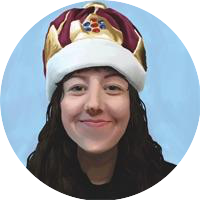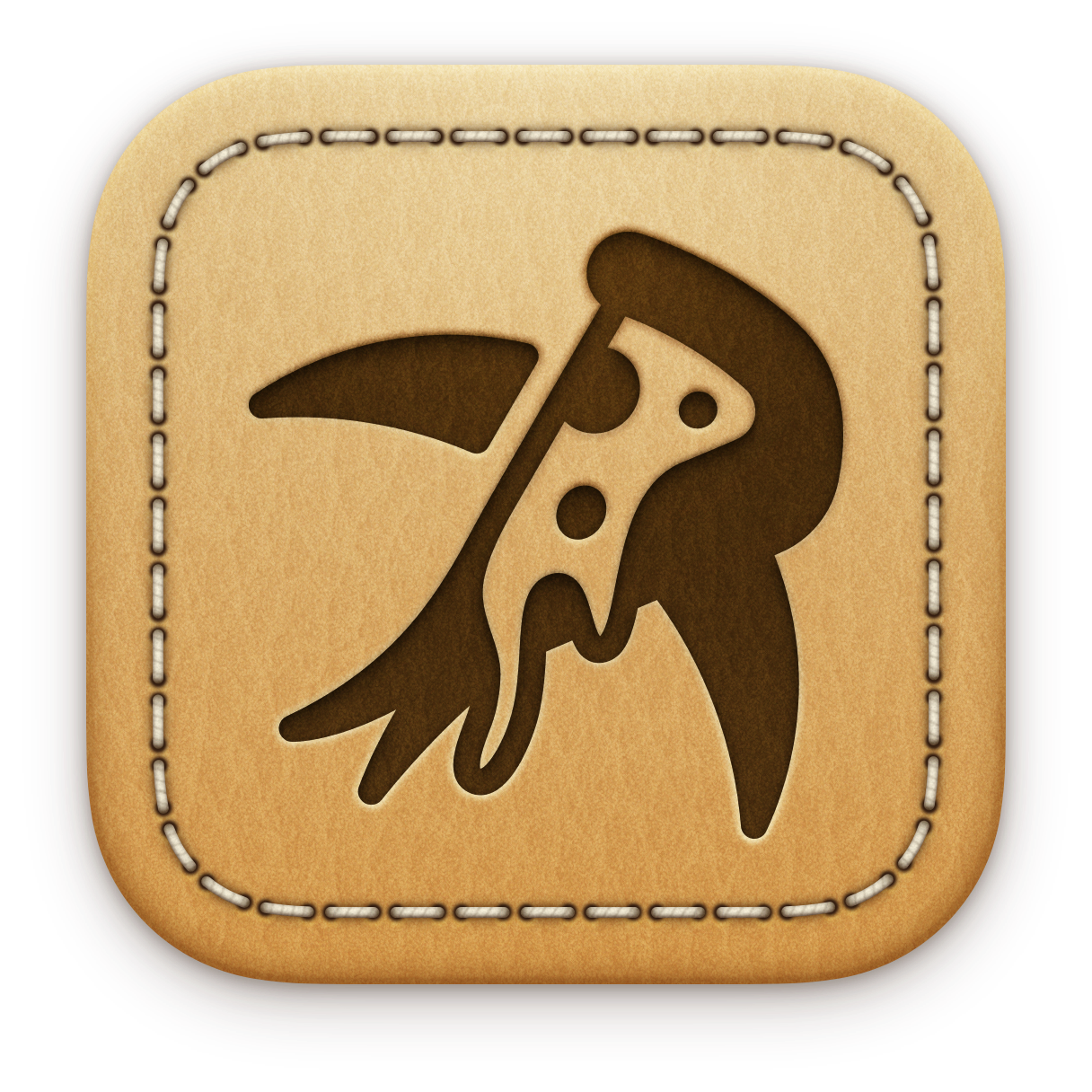Issue #102 - Belle B. Cooper
Happy Monday, everyone!
We made it to Issue #102! Thank you to everyone who read last week’s issue ❤️
Today’s Spotlighted Indie Devs
📆 Today I’m featuring Belle B. Cooper.
👉 Please make sure to follow them or support them anyway you can! 😇 I’m excited to share their indie dev stories.
Indie Dev

Belle B. Cooper
Q&A
1) What is your name? Where do you live?
Hi! I’m Belle. I live in Melbourne, Australia.
2) Introduce yourself. Education? Background? Main job? Interests outside of tech? Interests inside of tech?
I work full-time on Hello Code these days. I’m a self-taught developer, mainly working on iOS, but I’ve been learning web development recently, too. Objective-C was the first language I ever learned, and these days I work with Swift almost all the time. Coming from such strongly-typed languages, and the strictness of Swift (which I love), working with Python has been really difficult! But dynamic languages like Python and Ruby have lots of advantages in different areas to Swift, so it’s been really fun to explore those.
I’ve never been a huge gamer, but I bought a Switch a few months ago and I love it! I spend a lot of my free time gaming now, and I’d love to explore game development in the future.
3) Have you ever considered yourself an indie developer?
Always! I learned programming after we started our two-person company, so we were already indies. I started out in marketing before moving to full-time software development after a few years, which I like much better!
We did briefly flirt with fundraising from investors, but in hindsight I’m grateful that I was terrible at it and hated it. It turns out we’re far too anti-capitalist and irreverent to have investors. Being independent made our progress very slow, but it also meant we kept full control and always made decisions based solely on what’s best for us and our users.
4) What got you started/interested in creating your own applications outside of your “normal” job?
I’ve never worked as a developer for anyone but myself! I used to work in tech as a content marketer, which was a role I just fell into. I learned a lot through that work, but I was always interested in programming. I tried to learn to code and failed several times before I picked up iOS development, and for some reason that was the one that stuck.
Both of us prefer working for ourselves to being employees, and I think we’re better suited to the flexibility of being independent. It does come with a different set of stressors but the trade-off is worth it for us.
5) How do you balance your time between friends/family, work, hobbies, and indie dev?
For many years we worked on Hello Code in our spare time, and worked for other people to pay the bills. When I quit my last day job, I kept working on Hello Code at strange hours—at night and on weekends as well as during the week, because that’s what I was used to. I had no separation between work and non-work times.
Eventually I realised this wasn’t working for me, and I needed to have some strict non-work times when I could fully switch off and relax. I stopped working on weekends unless something urgent came off, and carved out that time for relaxation and other hobbies. It was hard at first! But I’ve been doing it for years now, and it really helps to have a strict boundary between work and rest.
6) Hello Meds looks so cool and has such an interesting concept of NOT being based around taking the same dosage and the same time each day. How did you come up with this concept? Was it an “ah ha!” moment or did it come out of frustration of not finding an app that would do what you needed?
Hello Meds definitely came from my own needs. I was diagnosed with ADHD in early 2020 and had a few other health concerns come up during that year, as well, so I was on-and-off different medications a lot. I tried a few other apps for tracking my medication, but none were really designed to have the flexibility that I was looking for. For my ADHD medication in particular, the dose and timing changes a lot depending on my needs each day, and ADHD isn’t too helpful for remembering to keep track of anything! Since I was trying to find the right medication and dosage for my symptoms, my doctor was helping me experiment a lot, and I wanted to keep good records of what medications I took and when. Hello Meds is designed to be super easy and super quick to track, so that I wouldn’t forget or avoid tracking. And it’s designed around the idea that you might take the same medication in all different dosages at all different times according to your needs and symptoms.
7) With Hello Meds being such a handy tool what was behind your decision to offer it for free?
I start a lot of side projects that I don’t finish. With Hello Meds, I was really focused on actually shipping something this time around. Part of that process was cutting down the scope for my first version to be as small as possible while still being useful. I have a lot more I want to add to the app in future, and I may add some new features as paid in-app purchases, but at this stage I just wanted to get something small and useful out there and make it free so people could use it and give me feedback.
8) Can you tell us a little about Hello Code and how it started?
My partner Josh has always been a web developer. He was working as a freelancer when we met, and working on his own projects on the side. When we started Hello Code, Josh had sold off his last side project and was itching for something new to work on. I was working in tech as a content marketer, but had always found it more interesting to hang out with the developers in my company and quiz them about what they were up to. We thought it made sense to start a company with a developer and a marketer, and it did, but once I learned programming I realised I liked it way more than marketing, so we ended up as a two-person dev team eventually.
9) Larder - A bookmarking tool for developers is such a cool idea! When I was participating in The SwiftUI Series I was constantly checking pages on GitHub and could have really used this. Can you tell us a little about it and what makes it special?
Larder’s integrations are one of the features that really sets it apart from similar services. The GitHub one that you mentioned creates a bookmark in Larder for any repo you star on GitHub. It’s really handy to have these in Larder, so you can search for articles, videos, blog posts, and repos all at the same time. We also send out an optional weekly email of all your starred repos that have published new releases in the past week. This is a great way to keep an eye on repos you forgot you starred years ago, and see when they make new changes!
We also have a Stack Overflow integration that makes a bookmark in Larder for any question you star. I tend to come back to the same Stack Overflow questions a lot, especially for things I don’t do regularly and forget the syntax for. It’s really helpful to be able to quickly refer to those questions in Larder.
Other features in Larder that might appeal to developers are our API and the option to create your own custom theme. Besides our developer-focused features, we try to make Larder fast and easy to use, and really stable.
10) Exist - Are there really only two of you working on this?? It looks so complex. Can you tell us about it and where the idea came from?
It really is just two of us! Josh handles the web front- and back-end and the Android app, and I do iOS.
We started working on Exist soon after the Moves app first became popular for tracking your steps using the built-in accelerometer in your phone. I tried using Moves for a while (it no longer exists), but the novelty of working to increase my number of steps wore off pretty quickly. This was before the Apple Watch and Android Wear, before HealthKit, and before the iPhone 5S arrived with the M7 chip for activity tracking. Fitbit and Jawbone were just starting to get some interest in the tech community, but hadn’t really hit the mainstream yet.
Based on my short-lived experience with the Moves app, and some research that suggested this experience was common with fitness trackers as well, we wanted to find a way to turn those numbers into insights and information that could help people understand themselves better. We thought we could help users uncover trends and correlations in their behaviour that they would otherwise miss if we brought their data from lots of sources into one place to analyse it.
At first we focused heavily on passive tracking, thinking the less effort required by the user, the better. This is true to some extent—passive tracking works really well for things like exercise, sleep, and even productivity in some ways. But there are some things that can’t be tracked this way, and they can be really important in helping users understand their own behaviour. Early on we added mood tracking, which is a manual process of selecting a rating on a scale each day, and optionally adding a note. We were surprised to find mood tracking was one of our most popular features, and users wanted more ways to track the data their devices couldn’t track for them. We since added custom tags, which let users track boolean data by tagging things like “coffee”, “guitar”, “worked from home”, or “headache”.
In April this year we launched full manual tracking, which is even more flexible: users can now create any numeric attribute they want and track it manually in our mobile apps. This is perfect for data that custom tags don’t quite suit, like tracking the amount of a medication you took, time spent in meetings, how many coffees you drank, or rating your stress or energy levels on a scale.
11) Exist - The number of connected services it can use is so impressive. Were there any unexpected challenges with supporting so many?
Building a business on the back of other services has been really tricky. Integrations have come and gone because companies have died (e.g. Jawbone), or they’ve shut down or restricted their APIs (e.g. Instagram, Facebook). The quality of API support, documentation, and stability really differs between services too, so the same data in Exist can be more or less problematic depending on where we sync it from.
Our best defense against this has been to spread the load, so we’re not putting all our eggs in one basket. With integrations like Facebook or Instagram, we can’t really replace those if we lose access to their APIs, but for activity and sleep we support Fitbit, Garmin, Oura, HealthKit, Withings, Misfit, and Google Fit, so losing one of those integrations is less painful for our users.
12) What’s been the hardest part of being an indie dev? What the most fun part of being an indie dev?
The hardest part is the responsibility, for sure. We gain flexibility and control and ownership by working for ourselves, but we lose the ability to go on holiday and not think about our business, or to pass the buck when we don’t want to make a decision.
The most fun part is definitely being able to build whatever we want. We have to balance how we spend our time, of course, and make sure we’re paying the bills, but within reason we have the freedom to follow our instincts and work on what’s interesting to us. It’s so motivating to work on projects that
13) Is there anything else you’d like to tell the indie dev community about you?
We’ve always run our business transparently, and we’ve found this works really well for us. Rather than pretending to be a big company, we’re honest about just being two indie devs from Melbourne, and our customers respond really well to our openness.
We publish our income and user numbers, and we have public roadmaps for all our products. Here’s the one for Exist, for example. In the past we also recorded a podcast about the ups and downs of being indie devs.
I definitely recommend being as transparent as you’re comfortable with, especially as an indie. It can be scary at first, but it’s become a really strong element of our business that our customers know who we are and they know they’re dealing with us directly when they contact support.
14) Do you have any other indie devs that readers should follow / lookout for?
I have to give a shout-out to Zach and Jelly, both iOS dev pals of mine from Australia. Marie is a Melbourne local who tweets about what it’s like to run her business day-to-day. Rusty is also an Aussie dev (of Pocket Casts fame) whose balanced opinions are a breath of fresh air in the tech world these days. Beau is also a great person to follow for balanced and interesting discussions. Lastly, props to Gwendal, the dev behind GRDB, which is one of my favourite iOS open-source libraries ever.
Newly Released and Updated Indie Apps
There were no newly released and newly updated apps from this past week which… is okay because we pumping out new and updated apps is a lot of work! But if you would like to possibly see your app in this list, please submit your app to the look at me form 👀
Thank you to everybody who made it to this footer! You either spent the time to read or took the effort to scroll 😊
Make sure to visit https://indiedevmonday.com/subscribe to get an email of future issues!
And go to Twitter and give @IndieDevMonday a follow… or multiple follows if you manage more than one Twitter account 😜

